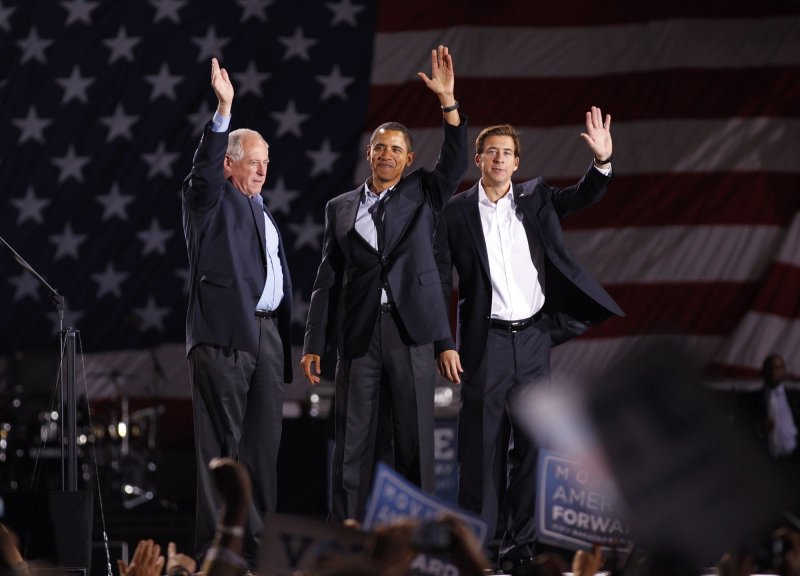1 of 2 | U.S. President Barack Obama (C) stands with Illinois Gov. Pat Quinn (L) and Democratic Senate nominee Alexi Giannoulias at a Democratic election rally near the campus of the University of Chicago in Chicago on October 30, 2010. U.S. Democrats are attempting to energize their party in the run-up to the November mid-term election. UPI/Brian Kersey |
License Photo
BRUSSELS, Nov. 1 (UPI) -- U.S-European relations barely raise a blip during U.S. midterm election campaigning, but European officials are watching the returns, a key diplomat said.
Piotr Nowina-Konopka, the European Parliament's top diplomat in Washington, said European countries want to see if the winds would shift if Republicans capture the House of Representatives as predicted on Tuesday, the EUobserver reported Monday.
"There is little, if any, mention about Europe during the campaign here. They are focused on national or local issues and foreign affairs and transatlantic issues are absent," said Nowina-Konopka, the head of the parliament's recently created Washington office.
Nowina-Konopka said the lack of a clear majority in the House or the Senate would mean "both parties will be prompted to cooperate more collegially with each other."
The diplomat said he didn't think much would change come Wednesday.
"I believe U.S. interests will remain the same as they are now," Nowina-Konopka told EUobserver. "Sooner or later the U.S. will be paying more attention to transatlantic cooperation. All statistics and observations prove that we have a good deal of things to do together in the EU and the U.S."
Political analysts say a hostile Congress would reduce the White House's ability to pursue issues important to the European Union, such as climate and data privacy protections, EUobserver said.
"Mr. Obama is in a very problematic situation. His victory was mostly an anti-(George W.) Bush vote and generated unrealistic expectations," said Ulrike Guerot of the London think tank European Council on Foreign Relations. "He will stay in power, but will have less capacity to do policy."















